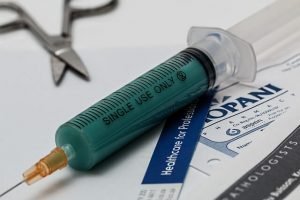
Free Consultation(203) 447-0000

Free Consultation(203) 447-0000
 In the U.S., there are approximately 1.3 million individuals injured by medication errors. According to the National Coordinating Council for Medication Error Reporting and Prevention, a medication error is one that is a preventable event that can cause or lead to the inappropriate use of a medication, or an incident that harms the patient while under the supervised, medical care of a health professional. This can include inaccurate dispensing, compounding, packaging, labeling of products, nomenclature, distribution, administration, monitoring, use and education.
In the U.S., there are approximately 1.3 million individuals injured by medication errors. According to the National Coordinating Council for Medication Error Reporting and Prevention, a medication error is one that is a preventable event that can cause or lead to the inappropriate use of a medication, or an incident that harms the patient while under the supervised, medical care of a health professional. This can include inaccurate dispensing, compounding, packaging, labeling of products, nomenclature, distribution, administration, monitoring, use and education.
It is the job of the FDA to review these medication error reports that they receive from drug manufacturers as well as MedWatch. They also receive reports from the Institute for Safe Medication Practices and the U.S. Pharmacopeia.
A study conducted by the FDA revealed that there are certain medication errors which are more common. These often involve medication administration and the improper dosage of that medication – which accounted for 41 percent of medication error fatalities from 1993 to 1998. Administering the wrong drug and/or using the wrong means of administration equally accounted for 16 percent of those errors. Over half of these errors were in patients over the age of 60 – because older people may be at higher risk due to the fact they take multiple prescriptions.
Sadly, medication errors are easily prevented – especially if a patient and doctor are more proactive. Any time a physician prescribes a medication, the patient should ask for the exact name of that drug, its dosage and what it is used for. That way if a substitution occurs at the pharmacy, they can ensure they are still getting the right prescription – or a generic for such prescription. Also, a patient must be aware of all medications they are taking and how to properly take them – this includes dosage, storage, special administration instructions (such as taking with food or taking at a specific time of the day).
Physicians should also inquire about what prescription medications and over-the-counter medications patients are taking before they prescribe anything to that patient. This includes dietary supplements and herbal supplements. This can prevent overdosing or dangerous drug interactions.
Lastly, pharmacies should be more proactive in identifying and clarifying prescription medications that they receive. If a physician’s writing is unclear, the pharmacist should verify dosing and prescription names before filling the prescription. Pharmacists should also discuss new medications with a patient and inquire about any medications they may be taking – to act as a secondary means for catching interaction risks.
Contact Berkowitz and Hanna LLC today to schedule a no obligation case evaluation. Call us or contact us online to get started.
Berkowitz Hanna
